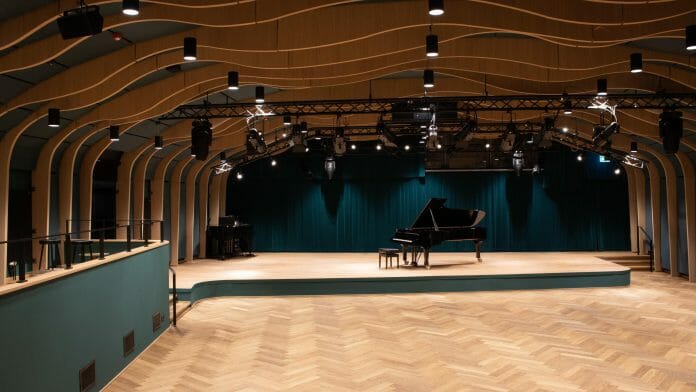In Germany there are 24 separate music academies, nine colleges for religious music and numerous institutes for music studies at universities. They offer students and excellent education and qualifications that are highly regarded internationally. Almost every fourth person studying music in Germany comes from abroad.
Music studies include three main programme areas: practical and creative music, music education, and musicology.
What is the difference between these three areas of study?
Musicology is usually taught at universities. Contents include the foundations and methods of musical science, the history of music, and ethnomusicology.
Programmes offering the study of music as a practical and creative art are mainly offered by music academies and colleges. The students choose their main area at the start of their programme. They then study, for instance, a specific instrument, conducting, voice, instrumental music or composition.
Music education is offered to students at music colleges and at universities. Contents include such areas as rhythmics and knowledge of instruments, music communication techniques, psychology, and speech and voice development.
How can I apply?
Entry requirements vary depending on the institution, but there is always a musical aptitude test. This test has to be completed several months before starting the study programme. If you are considering applying, you should be able to play more than one instrument, have voice training potential, good auditory skills and a knowledge of musical theory and harmony. Special entrance exceptions: Highly gifted students may be admitted without the normal university entry requirements, unless you are aiming to train as a school teacher.
What are the job prospects after graduation?
Graduates can work as musicians, conductors, composers or music teachers, at publicly financed schools or private schools. There are also a great variety of possibilities in music management and the media, for instance in journalism, editing, theatre, film and television productions.









